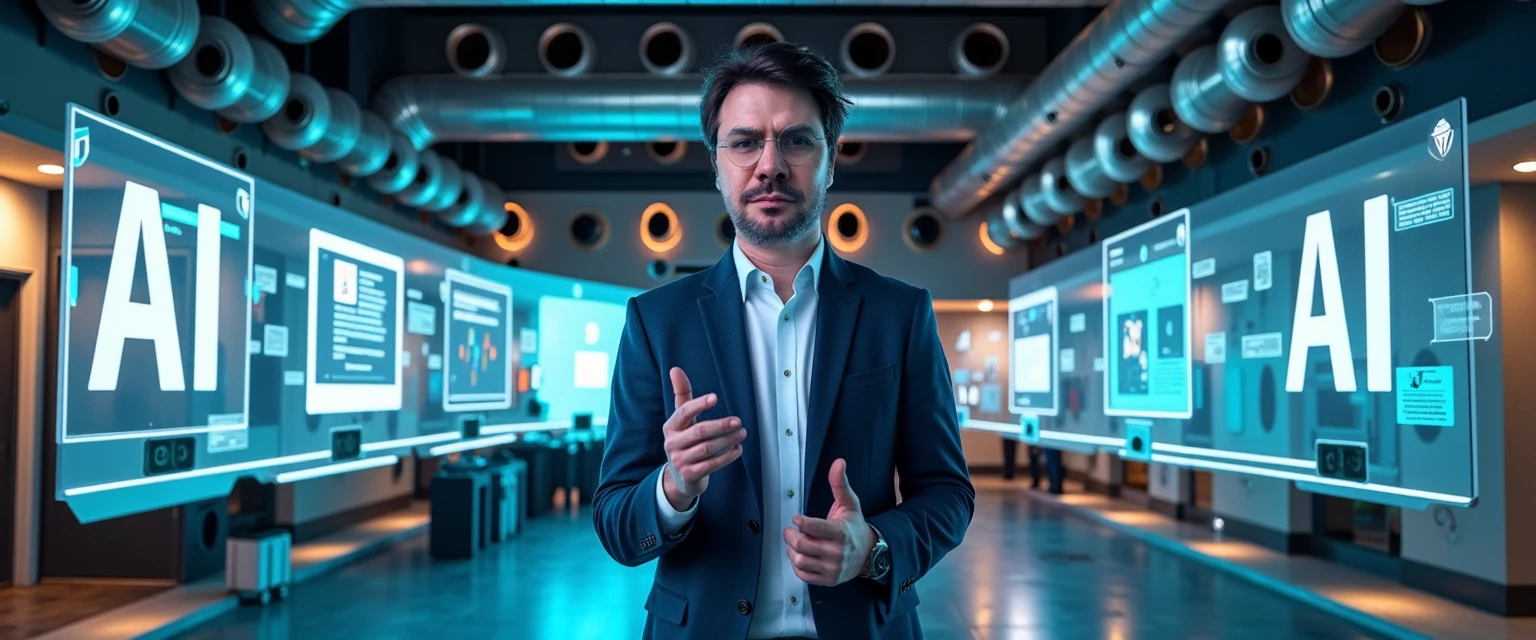The AI Revolution in Brazil: From the Judiciary to Startups
February 20, 2025 | by Matos AI

The Impact of Artificial Intelligence on the Brazilian Judicial System
The National Council of Justice (CNJ) has taken a significant step by approving a normative act that regulates the use of artificial intelligence in the Brazilian Judiciary. This measure is an important milestone in the modernization of our justice system, establishing clear guidelines for the implementation and use of advanced technologies in the courts.
As an entrepreneur and technology expert, I see this regulation as a crucial step forward. It not only promotes efficiency, but also ensures transparency and ethics in the use of AI, aspects that I have always defended throughout my career in the innovation ecosystem.
Grok 3: The New Frontier of AI
Meanwhile, on the global stage, Elon Musk’s xAI has launched Grok 3, an enhanced version of its AI that promises to be ten times more powerful than its predecessor. The launch has reignited the debate about the future of AI and its applications in a variety of areas, including the justice system and entrepreneurship.
Join my WhatsApp groups! Daily updates with the most relevant news in the AI world and a vibrant community!
- AI for Business: focused on business and strategy.
- AI Builders: with a more technical and hands-on approach.
As someone who has supported the formation of more than 10,000 startups, I can say that tools like Grok 3 have the potential to revolutionize the way entrepreneurs develop their businesses and solve complex problems.
Innovation Made in Brazil: AI in Document Management
I am proud to see Brazilian companies like eComex leading innovation in AI. The launch of AI Digital Army, which reduces document management time by up to 70%, is a brilliant example of how we can apply artificial intelligence to solve real problems and increase business efficiency.
This type of innovation reinforces what I always say in my lectures and mentoring sessions: Brazil has immense potential to be a global player in technology and innovation.
Ethical and Legal Challenges
With great progress comes great responsibility. The House of Representatives’ approval of a bill that criminalizes the manipulation and dissemination of AI-generated fake content is an important step in the right direction.
As an advocate for responsible innovation, I believe this type of legislation is essential to creating a safe environment for the development and use of AI, protecting individual rights and promoting trust in the technology.
The Future of Education and Work
Discussions about the impact of AI on education, such as those promoted by Colégio Bandeirantes, are essential. In my experience as the founder of Sirius, the first neo-university in Brazil focused on technology, I can attest to the importance of preparing new generations for a world where AI will be omnipresent.
The concept of CACACA (Creativity and Autonomy; Collaboration and Adaptability; Connection and Affection) that I developed to describe the skills needed by workers of the future becomes increasingly relevant in this scenario of rapid technological evolution.
Conclusion: Brazil at the Forefront of AI
These recent developments show that Brazil is taking important steps towards adopting and regulating AI. As an entrepreneur and technology enthusiast, I see a promising future for our country in this field.
In my lectures and consultancies, I always emphasize the importance of embracing innovation in an ethical and responsible way. The current moment reinforces this message and opens new opportunities for entrepreneurs and companies that know how to position themselves in this new era of AI.
If you are looking for guidance on how to implement AI in your business or want to better understand how to prepare for the future of work and innovation, I am available for lectures, mentoring and personalized consulting. Together, we can build a future where technology and innovation are positive forces for the development of Brazil and the world.
✨Did you like it? You can sign up to receive 10K Digital's newsletters in your email, curated by me, with the best content about AI and business.
➡️ Join the 10K Community here
RELATED POSTS
View all



